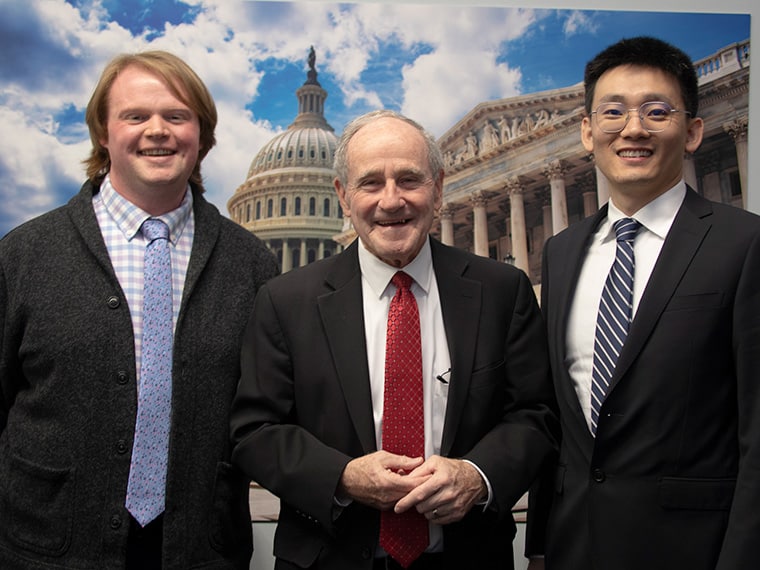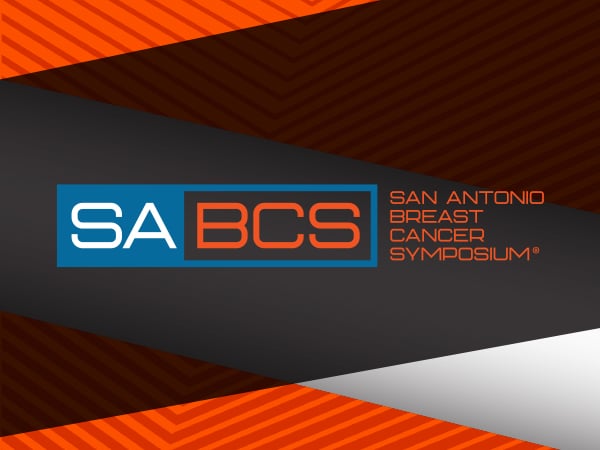Mr. Wolf Goes to Washington Seeking Support for Cancer Research
Cody Wolf is a 30-year-old graduate student pursuing a doctorate in biomolecular science at Boise State University in Idaho. His research focuses on inflammatory cytokines and their role in breast and prostate cancer, as well as developing novel small-molecule inhibitors that could inhibit the spread of the cancer.
He’s a member of the American Association for Cancer Research (AACR) Associate Member Council and an experienced advocate for government support of cancer research. Funding for the National Institutes of Health (NIH) is, in a way, very personal for him.
“My PhD program is directly funded by NIH,” he said in discussing a recent advocacy trip to Washington. “My program would not exist if it wasn’t for NIH funding.”
Colleges and universities in Idaho and other states receive funds from the NIH’s INBRE program—Institutional Development Award Program (IDeA) Network of Biomedical Research Excellence. Program elements range from support for faculty, postdoctoral fellows, and graduate students to summer programs for undergraduate science majors.
One student who benefited from INBRE wrote a song on the theme of “Summer research never looked so good,” adding, “Thank you for this very special time/to discontinue you would be a crime.”
Taking Part in Early-Career Hill Day
Wolf flew to Washington in late February to remind members of Congress from Idaho and the West how important NIH is to the states, joining about 20 other researchers in an Early-career Hill Day sponsored by the AACR.
As a veteran of lobbying in both in both Washington and the state capital of Boise, Wolf knew that wearing comfortable walking shoes is important but having well-honed talking points is critical.
“We wanted to bring home to the members the need to increase NIH funding as much as possible, and National Cancer Institute funding with it, and to thank the members for the continued support they have given NIH research in recent years,” he said.
After breakfast and a strategy session, Wolf and Rui Li, a newly minted MD PhD from California, headed to the Capitol complex on a pleasant, sunny day with a list of congressional offices to visit.
Their specific message was that Congress should fund NIH at the highest possible level in fiscal year 2024.
“The reception we got was very favorable,” Wolf said. “The members and staff that we met with were very supportive of NIH funding. They realize what it does for the states. Members of the Idaho delegation know how it keeps Idahoans in the state doing things they love to do, and brings in economic development as well.”

More Funding, More Grants, and the Future of Cancer Research
The two young scientists met with Idaho Senator James E. Risch, a Republican, who assured them of his support for NIH and then asked them what they thought of artificial intelligence in biomedical research.
“The main thing I see for AI right now is the ability to detect cancer on an X-ray, or MRI, or other image,” Wolf said. “A lot of effort is going into developing AI that’s able to detect tumors at a faster rate than a doctor could. So instead of a doctor looking at every scan that needs to be seen, you could have AI evaluate it and give a preliminary detection. That would be extremely helpful for communities that are experiencing a physician shortage, which is a problem in Idaho and other states.”
Wolf appreciated the opportunity to discuss the latest trends in biomedicine with a U.S. senator. Still, his focus remained firmly on seeking federal support for medical research.
“We’re all very passionate about funding,” he said. “We know increased funding is the way to get to a cure for cancer, and we need to make sure that happens.”
Wolf said he was grateful to the AACR for sponsoring an event specifically for researchers who are early in their careers.
“Early-career scientists typically have a bigger challenge getting grants to support their work,” he said. “It’s very important that we keep the funding for the future of cancer researchers in the United States.”



